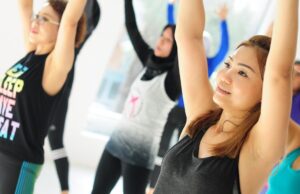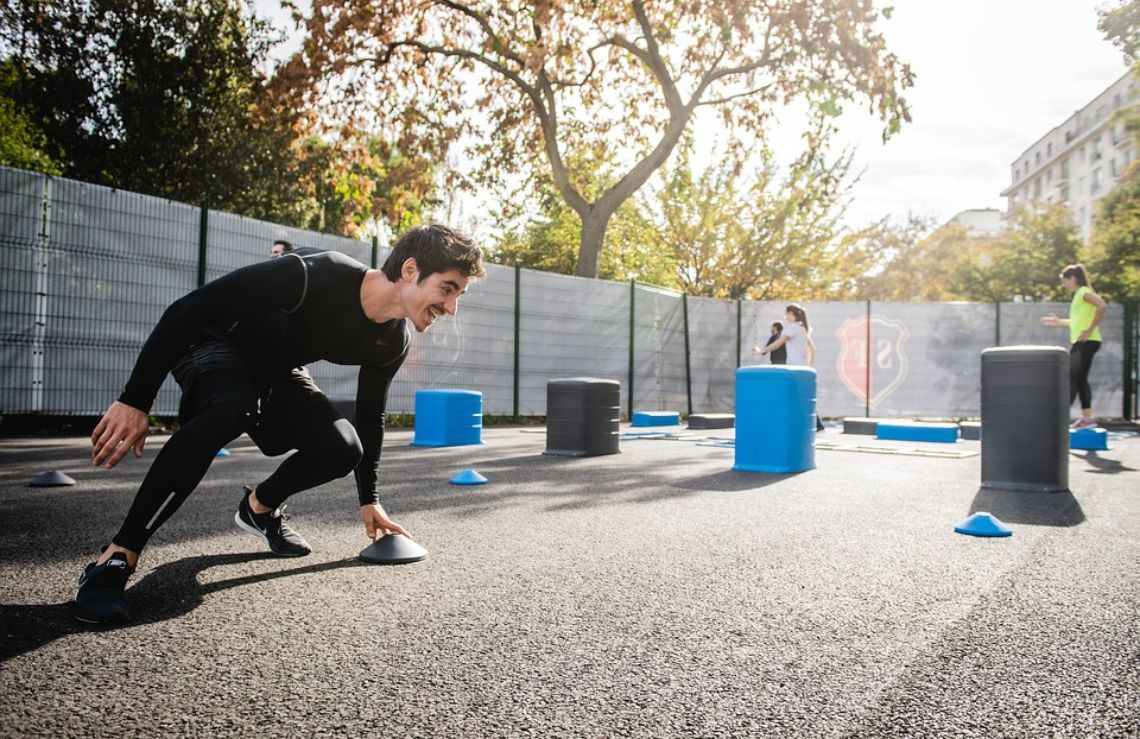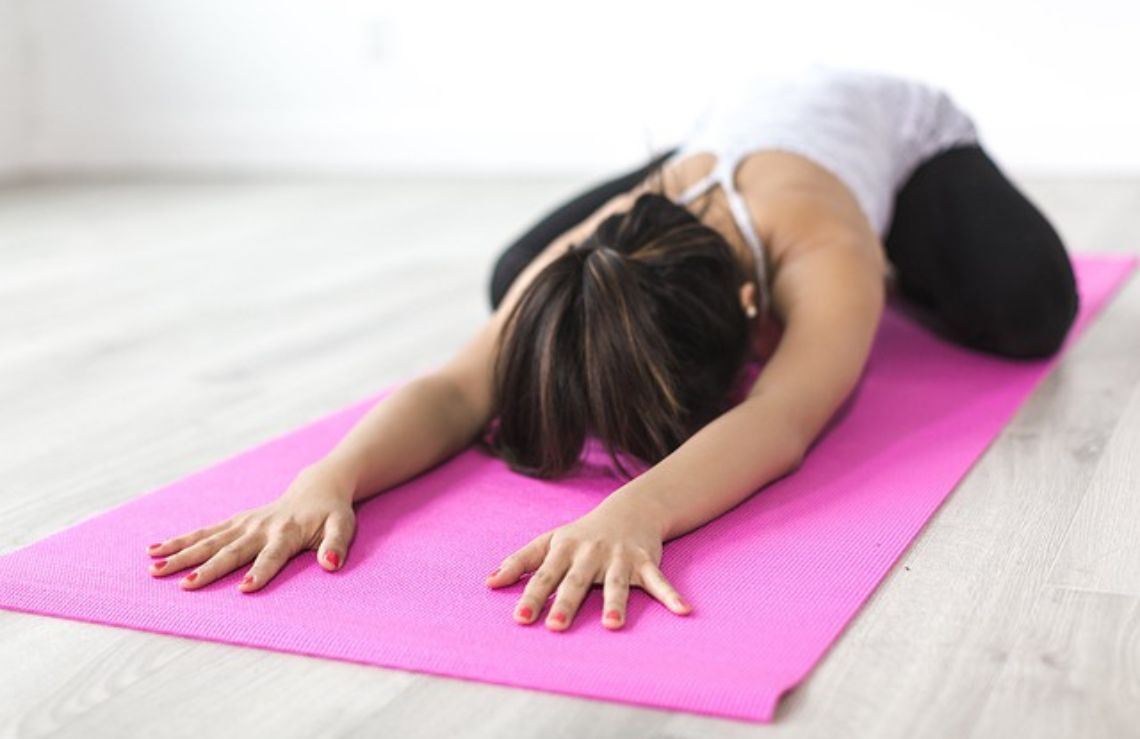
“Get Fit for Life: Your Complete Fitness Roadmap” is all about creating a sustainable path to lifelong health and vitality. Fitness isn’t a one-size-fits-all journey, and this roadmap is designed to help you create a customized plan that adapts to your needs, goals, and lifestyle changes over time. From defining your personal vision to building a balanced routine, this guide provides you with the essential steps, insights, and habits needed for lasting fitness. The goal is not just to reach a specific milestone, but to create a healthier, more energized life.
The foundation of lifelong fitness begins with a strong purpose. To build a truly lasting fitness routine, start by defining why fitness matters to you. Is it about feeling stronger, improving your mental health, or building the energy to enjoy everyday activities fully? A clear purpose becomes a guiding force, motivating you to stay committed to your goals even when challenges arise.
“Knowing why you want to stay fit makes all the difference. Purpose turns fitness into a lifestyle rather than a temporary phase.”
Once you understand your purpose, it’s important to set achievable, flexible goals. Goals act as signposts on your journey, giving you tangible milestones to aim for, whether it’s increasing your stamina, building strength, or improving flexibility. However, lifelong fitness goals need to be adaptable. Fitness is a journey that shifts with time, so allow your goals to evolve as you do. By breaking down larger goals into manageable steps, you can keep your progress steady and maintain motivation over the long term.
“Goals are not just end points but reminders of where you’re going. Set them wisely, and let them adapt as you grow.”
Building a balanced fitness routine is crucial for lifelong health. This means incorporating a mix of cardiovascular exercise, strength training, flexibility, and rest. Cardio exercises, like walking or cycling, support heart health, strength exercises help preserve muscle as you age, and flexibility exercises ensure mobility and range of motion. Together, these elements work in harmony to give you a well-rounded fitness foundation. Remember, rest days are just as important as workout days. Recovery allows your body to rebuild and adapt, preparing you for future workouts.
“A balanced approach ensures your body is prepared for the demands of life, not just workouts. It’s about building a body that’s resilient, strong, and agile for years to come.”
Nutrition plays a vital role in your fitness journey. Instead of focusing on restrictive diets, aim for a sustainable eating plan that supports your lifestyle. Nutritious, balanced meals with lean proteins, whole grains, and healthy fats fuel your workouts, promote recovery, and contribute to overall wellness. Hydration is another key factor, as water is essential for almost every bodily function and can have a big impact on your energy and performance.
“Nutrition fuels your fitness journey. Think of food as energy that powers your body, keeps you sharp, and helps you perform at your best.”
Consistency is the cornerstone of fitness that lasts a lifetime. Instead of focusing solely on intense workouts, aim for regular, sustainable movement. Small, consistent steps are far more impactful over time than short-lived bursts of extreme exercise. Make fitness a regular part of your routine, even if it’s just a walk, a stretch, or a few minutes of strength training each day. When you prioritize consistency, you’re building a lifestyle rather than completing a temporary phase.
“Small, steady steps add up to major progress over time. It’s consistency that transforms habits into lasting changes.”
Flexibility and mobility are also essential components of a well-rounded fitness regimen. By incorporating stretching, yoga, or dynamic movements into your routine, you’re preparing your body for a lifetime of movement. Flexibility ensures your muscles stay supple, while mobility maintains joint health, reducing the risk of injury and keeping you active over time. These aspects become even more important as you age, supporting independence and freedom of movement.
“Flexibility and mobility are investments in lifelong wellness. They keep your body moving smoothly and protect it from wear and tear.”
An often-overlooked aspect of lifelong fitness is learning to listen to your body. Fitness is not a one-size-fits-all journey, and being attuned to your body’s needs helps you adjust your workouts, intensity, and rest based on how you feel. Over time, your energy levels, strength, and recovery ability may change, and it’s essential to adapt to these shifts. Building this awareness is key to making fitness sustainable, as it allows you to balance pushing forward with the need for rest.
“Listening to your body helps you create a fitness routine that’s kind and respectful of your needs. It allows you to adapt, grow, and sustain your fitness for life.”
To keep your routine enjoyable and sustainable, focus on finding activities that bring you joy. When fitness is enjoyable, it becomes something to look forward to rather than a chore. Try a range of activities—like hiking, dancing, or swimming—to find what feels fun. Regularly refreshing your routine keeps things interesting and engages different muscles, preventing boredom and plateaus.
“Fitness is about enjoyment, not just effort. Finding joy in movement makes it a lifelong habit rather than a fleeting phase.”
Tracking progress is another key part of maintaining motivation. A fitness journal helps you see where you’ve been, what’s working, and where you might want to make adjustments. Tracking can include logging workouts, noting how you feel, and measuring progress in different ways—not just by physical appearance but also by strength, endurance, and overall well-being. This reflection allows you to celebrate progress and stay motivated.
“Tracking your progress isn’t about numbers; it’s about celebrating every step forward and recognizing how far you’ve come.”
Building a strong support system can greatly enhance your fitness journey. Whether it’s friends, family, or an online community, having people who encourage you can make all the difference. Sharing your progress and challenges helps you stay accountable and motivated. When others understand and support your goals, it becomes easier to stick with them, especially during tougher times.
“A support system lifts you up when you need it most, giving you encouragement to keep going even when motivation wanes.”
Finally, lifelong fitness is as much about mindset as it is about physical strength. Embrace patience, resilience, and a sense of pride in your journey. Fitness is a long-term commitment that ebbs and flows; there will be good days and challenging days, but the key is to stay positive and keep moving forward. Celebrate each accomplishment, no matter how small, and remember that the true goal is a healthier, happier, and more fulfilled life.
“Lifelong fitness is a journey. Celebrate each step, stay positive, and know that every effort is an investment in a healthier future.”
“Get Fit for Life: Your Complete Fitness Roadmap” is a holistic approach to health and fitness that adapts as you grow. It’s about building a routine that supports you through life’s changes, enhances your well-being, and keeps you active and capable. Embrace these principles, and fitness will not only become a part of your life but a source of strength, resilience, and joy for years to come.


